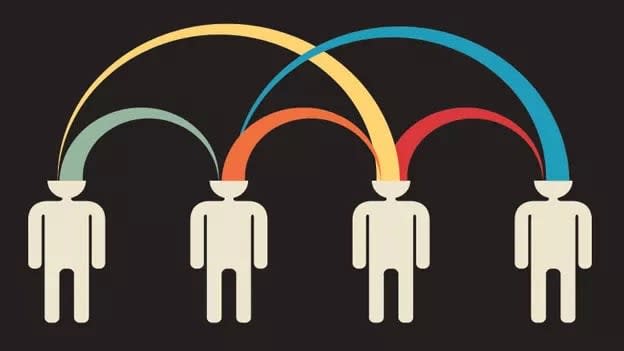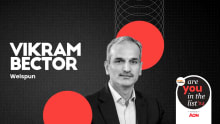A broader talent management game: Embracing new-age performance philosophies

The talent management landscape has been growing and changing radically , and retaining talent has not been getting any easier. It is only natural then, that performance management systems have been undergoing a renaissance in terms of concept, functionality and business relevance.
In the past couple of years, various Fortune 500 companies like GE, Adobe, Cisco, Accenture have moved away from their traditional annual performance management process which was perceived as demotivating, bureaucratic and ineffective. And ever since, more and more companies are adopting new-age approaches to champion the performance management process. Hence, there lies a need to adapt to and adopt powerful, evolved, new age performance tools that are based on the latest work philosophies in order to leverage on and nurture the potential of the workforce today.
Why change?
There is a need to transform the human-technology interface by creating enterprise platforms that can keep up with the experience provided by other consumer-class platforms and interfaces that we use everyday. Our expectations from technology change every day and considering that our demands from it have been increasing, seamless interface is of the essence. It is only natural then, that we seek the same seamless, well-integrated experience from our enterprise apps and technology platforms that we use for the smallest of tasks on a daily basis. When it comes to performance metrics too, organizations are quickly realizing the benefits of integrating the best-in-class live technology that makes real-time access and analysis the norm.
What’s new?
When it comes to future-proofing the processes of performance management, companies today are looking at features like Continuous Feedback, Competency Mapping and Unique Assessment Frameworks that are engaging for both managers and the employees they manage. Besides these, there are also other comprehensive features, such as, Goal Cascading, Succession Planning, Multi-stakeholder Feedback and Compensation Modeling. Moreover, it is no longer just about personalizing these processes for every organization but rather tailoring them to suit every individual in each organization.
Which are the features that are being used widely?
The number of organizations today that are trying to change their performance management systems has been growing exponentially over the last few years. The shift in measuring performance is not limited to any sector but rather is a collective shift across sectors.Top leading pharmaceutical brands, leading e-commerce players and logistics service providers are all on the path to greater success with the right features in their portfolio.
Continuous Feedback for continuous improvement: A leading e-commerce player in India with an inherently millennial DNA and self-starter mindset needed a platform that allowed its dynamic workforce to be able to speak a common language and also provide a space to enable smoother dialogue. They implemented the practice of continuous feedback across all levels to keep communication channels open and create a culture of instant information sharing and course correction. The key to drive engagement and adoption with regard to these new formats seems to be user-centric design, intuitiveness, and simplicity, which platforms like Darwinbox allow for. With these three pieces in place, no matter how wide an organization is, each individual can be connected despite geographical, cultural and educational diversity.
Unique assessment frameworks for every philosophy: A growing logistics company made avail of multiple assessment frameworks on Darwinbox to personalize a performance feedback model at a role level catering to organization-specific needs and demands. With companies that have a very diverse team based on roles, such models are not just relevant but a requisite too. Since roles served across levels, function and departments are varied, the competencies to be measured, the weights assigned to each and the format of appraisal needs to be different as well. Enabling level of role-specific personalization in appraisal frameworks paves the way to greater engagement and a deeper internalization of goals and feedback.
Success in succession: Companies that are moving away from the mentality of hiring ready-made talent and moving towards innovative and effective succession planning are on the right path. There are performance management tools today that not only help organizations to identify successors but also to define a succession profile and create a succession map. A framework that has been found to be exceptionally helpful for succession planning is the 9 box talent matrix. The tool assesses individuals on two dimensions: their past performance and their future potential. It places employees on a grid and identifies employees’ ranking in both performance and potential. It thus provides a clear picture in terms of where a certain employee stands and how s/he can be made to attain his/her full potential.
Goal-den opportunity: One of India's largest pharmaceutical companies empowered its employees by cascading goals and by facilitating goal alignment at an organizational level. Goal cascading provides the opportunity to elevate accountability, strategize future goals and prepare a more effective plan of action. A unique but efficient way to do that, as Darwinbox saw, was to map out an organizational scorecard where besides individual and group goals, the vision of the organization is translated into actionable and attainable goals as well. This not only helps individual employees understand the bigger picture but also to envision the specific part they play in it.
The (b)onus of new-age performance management
Performance management, being a critical requisite in any successful organization needs to be a democratic process that facilitates transparency and continuous dialogue. But while the right performance management system come with a big bag of bonuses, whose onus is it to make the shift toward these new-age philosophies that are proving their worth across sectors? To enable greater engagement and more individual involvement, these new systems need to be true, objective and always backed data ensuring fairness and transparency. With most companies being in the grip of digitalization in every aspect of business function, sharing the evolution process might ease the path ahead. With that thought in mind, here’s a peek into the new-age performance philosophies and tools that have helped Darwinbox’s clients meet and exceed their talent needs and growth aspirations.












